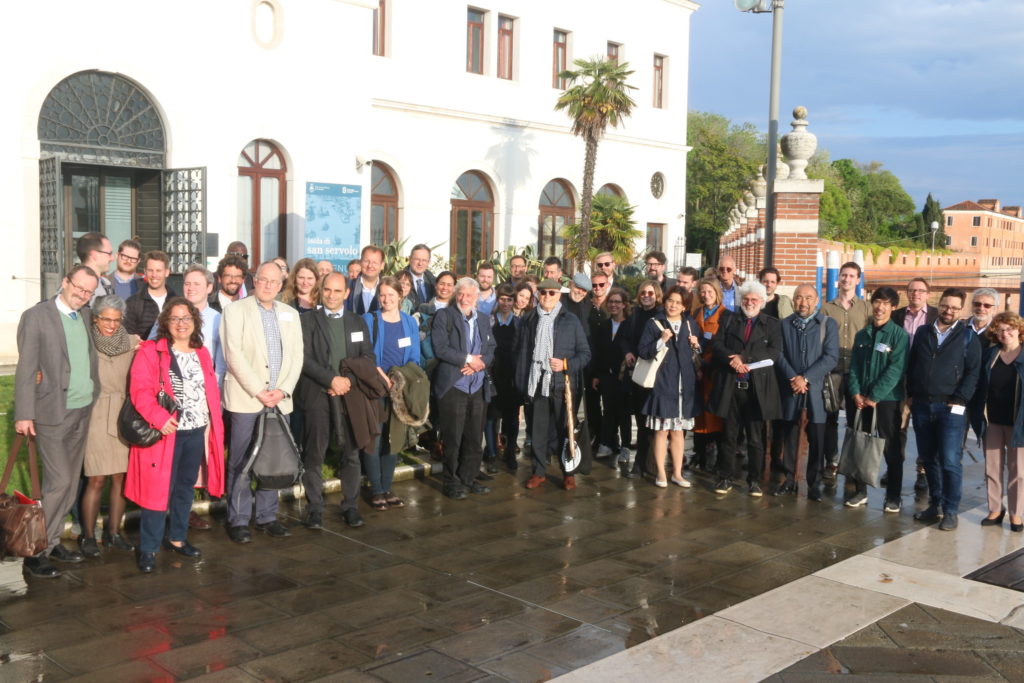Republican political theory has witnessed a remarkable revival in recent years. But what does it offer for our efforts to make sense of and provide guidance with a view to the political turbulences of our contemporary world? This question was addressed at the “Republics and Republicanism: Theory and Practice. Heritage, Current and Future Perspectives” Conference which took part 3-5 May at the University of Venice.
How come a political approach that goes back as far as Aristotle and the Roman Empire has celebrated a comeback in political theory in recent years? It’s a development both triggered by a surge in challenges to liberal democracies around the world, as well as the profound work of contemporary like Philip Pettit and Quentin Skinner, in brushing up the theory’s potential for the 21st century. A cornerstone of neo-republican theory is its understanding of freedom as non-domination. While according to the liberal understanding, freedom requires merely the absence of interference, republican freedom requires not just the absence of interference, but also an actor’s ability to do so. As this focus allows neo-republicans to account for implicit power structures and dependencies, the theory has become a fruitful tool when thinking about the new power structures created by the major trends of our time, such as digitisation and globalisation.
Papers and Presentations: Republican Heritage, Current and Future Perspectives
The first edition of what is going to be a bi-annual conference on Republicanism took place in Venice, one of the most spectacular historical sites of republican thought. There, I presented my paper ‘Digital Companies and Citizens under Threat: Republican Values and Personal Data Ownership’. In the paper I argue that some of the challenges raised by the data economy touch upon core (neo-)republican values associated with freedom as non-domination, such as prudence and self-reliance, and that republican theory can therefore be a prolific tool to structure the debate surrounding them.
The conference opened with a keynote by Philip Pettit, an esteemed scholar of republicanism and father of the ‘neo-republican perspective’. In his keynote, Pettit contrasted neo-republicanism and neoliberalism, clarifying the background assumptions in each approach, as well as formulating the features of a state in each perspective, as well as the respective criteria of state performance. Among other things, a neo-liberal state should stay out of interactions governed by free contract, even if such contracts allow for exploitation, as well as keep its sanctions on a minimal level. A neo-republican state, however, should regulate the conditions governing any form of contract, so as to protect citizens against domination, as well as introduce sanctions to reduce the likelihood of domination, as well as rectifying poverty and inequality that are rooted in the market, in so far as they’re pre-conditions for domination.
Noteworthy Contributions: Responsibility for Domination and Universal Basic Income
The scope of the contributions was vast. Contributions dealt with republicanism and its concept of domination (Tamara Jugov, Freie Universität Berlin), prospects and limits of a republican model for the EU (Desmond Johnson, The Hague University of Applied Sciences), as well as the idea of the republic in the blockchain community and cloud public spaces (Olga Bychkova, European University of St. Petersburg). You can find the full program here.
Dorothea Gädeke (Universiteit Utrecht): Responsibility for Domination
There were a number of noteworthy contributions to Republican theory. One I found particularly interesting was Dorothea Gädeke’s (Universiteit Utrecht) presentation on structural domination and responsibility. While building upon Pettit’s work, Gädeke argues that when dealing with the question of responsibility and action against domination, Pettit’s account should be modified by conceptualising domination as an instance of structural injustice, marked by its division of empowered and disempowered. According to her, domination is (i) a position of power, (ii) not necessarily intended and (iii) a triadic relation between dominator, dominated and peripheral actors. Building upon this, actors in this triadic relationship possess corresponding responsibilities. With her focus on responsibility for domination, Gädeke deals with an issue the theory has largely neglected. Moreover, by arguing that it’s not just the dominators who bear responsibility, but also third parties that help manifest and repeat certain forms of domination, Gädeke raises an important issue that I have not seen discussed in similar depth in other recent contributions to (neo-)republican theory.
Orlando Lazar-Gillard (University of Oxford): The False Promise of a Republican Basic Income
A second noteworthy presentation was Orlando Lazar-Gillard’s ‘The False Promises of a Republican Basic Income’ (Oxford University). Lazar-Gillard argues that the idea of a universal basic income (UBI) has been embraced by some republicans who expect it to have an empowering effect on workers, for example by increasing their bargaining power when it comes to working conditions or salaries, thereby also increasing the likelihood for workers to become politically active. However, as he points out, a universal basic income is not an ‘easy fix’ for increasing workers’ standing in the workplace, but on the contrary, such a measure would be rather demanding if it was to work. By showing that the level of the grant would have to be very generous, and the maintenance of the grant would have to meet strict criteria, in order to be truly ‘republican’, Lazar-Gillard credibly challenges a popular belief on the prospects of a much-debated policy instrument. In addition, he also makes the case for other, more efficient ways in which to improve individuals’ standing in the workplace, such as the strengthening of workers’ unions and building class consciousness.

See more photos of the conference here.
Words: Roberta Fischli
